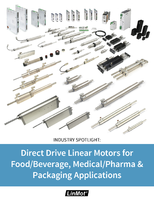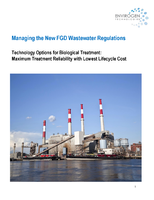Quality Solutions for Injection Molded Plastic Components by Crescent Industries
Companies require quality injection molded components consistently. Today quality is what makes all the difference. Below are quality certifications, tools and equipment to help achieve the highest level of quality plastic components and devices.
Quality Certifications Registrations
Quality assurance is a program for the systematic monitoring, evaluation and documentation of the various aspects of a project to ensure critical standards of quality are being met.
ISO 9001 - ISO: International Organization for Standardization, a third party organization providing confirmation that companies meet requirements for the ISO certifications. The ISO 9001:2008 certification for quality management systems are designed to help companies meet customer needs. This manufacturing certification standard is recognized globally.Â
ISO 13485 - ISO 13485:2003 quality certification is for companies manufacturing medical devices. Companies that achieve ISO 13485 certification are in line with the Food and Drug Administration's QSR standards and are globally recognized for conforming to the medical device regulatory requirements. This gives the injection molding company the benefit of increased efficiency, accomplishing regulatory requirements and monitoring the effectiveness of the supply chain. ISO 13485:2003 is also a manufacturing standard respected worldwide.
FDA Registered - With FDA registration your injection molder can manufacture not only components that are distributed to a finished device manufacturer; but to manufacture finished goods device or components that are packaged or labeled for commercial distribution for health related purposes to an end user. This also means the Quality Management System has to be in compliance with the rules established under FDA quality System Regulation (QSR) as established under the 21 Code of Federal Regulation (CFR) Part 820 (Medical Devices).
ITAR - ITAR: International Traffic in Arms Regulations set by the United States government. This set of US government regulations controls the export and import of defense related product and services on the United States Munitions list, which is a list the US government deems as defense related goods, services and technology. This means your injection molder has control over the following: all employees must be able to work in the United States legally, all product identified as ITAR must be controlled, identified and secured, technical information must be identified and secured including electronic data, blue prints, BOM's, work instructions, and email, and all facilities must be secured at all points of access as well as visitors must be escorted after access is granted.
Quality Tools and Processes
Product/Process Failure Mode and Effect Analysis - PFMEA is a quality measure used to measure and impact important variables that affect product quality. By knowing which variables impact the finished products and in what ways, PFMEA's allow custom injection molding plastic component manufacturers to assign a level of risk to each potential point of failure, prioritizing urgent items first.
Control Plans - If PFMEA's are used to identify a problem, control plans are the solutions to those problems. It's important that a quality control process not only be able to figure out where the problems and vulnerabilities are, but also quickly and accurately solve them.
Process Validation – This incorporates the IQ, OQ PQ qualifications. During IQ (Installation Qualification) the equipment and supporting subsystems should be inspected for quality and accuracy. Injection molds should be validated for their ability to create parts that adhere to their original specifications. Once IQ is completed, OQ (Operational Qualification) can begin. OQ qualifies the actual operation of the process equipment by manipulating the variables. By altering the temperatures, pressures and velocities of equipment, OQ can ascertain the highest, lowest and nominal operating parameters that still yield a finished product. Once OQ is completed, PQ (Performance Qualification) can start which tests lots of real world scenarios that production could encounter. Machines should be run and cooled multiple times using actual manufacturing materials to verify the entire process will produce quality products consistently.
Utilizing Automated Quality Inspection Equipment
Using automated/CNC quality inspection equipment can dramatically reduce the incidence of inferior components making it through the QC check points – to ensure you are getting the best custom injection molded product possible.
• Improving inspection accuracy and measurement reports – allows for quick and repeatable inspection of complex parts which can be easily compared to historical data to the most recent production run to detect material or processing issues.
• Examining of small parts – small and delicate parts can be measured utilizing optical and video equipment easily and safely to prevent damaging the part.
Crescent Industries puts all these practices to work to achieve optimal quality from design through final production for our customers injection molded components. For more information call 717-235-3844 or visit our website www.crescentind.com.




